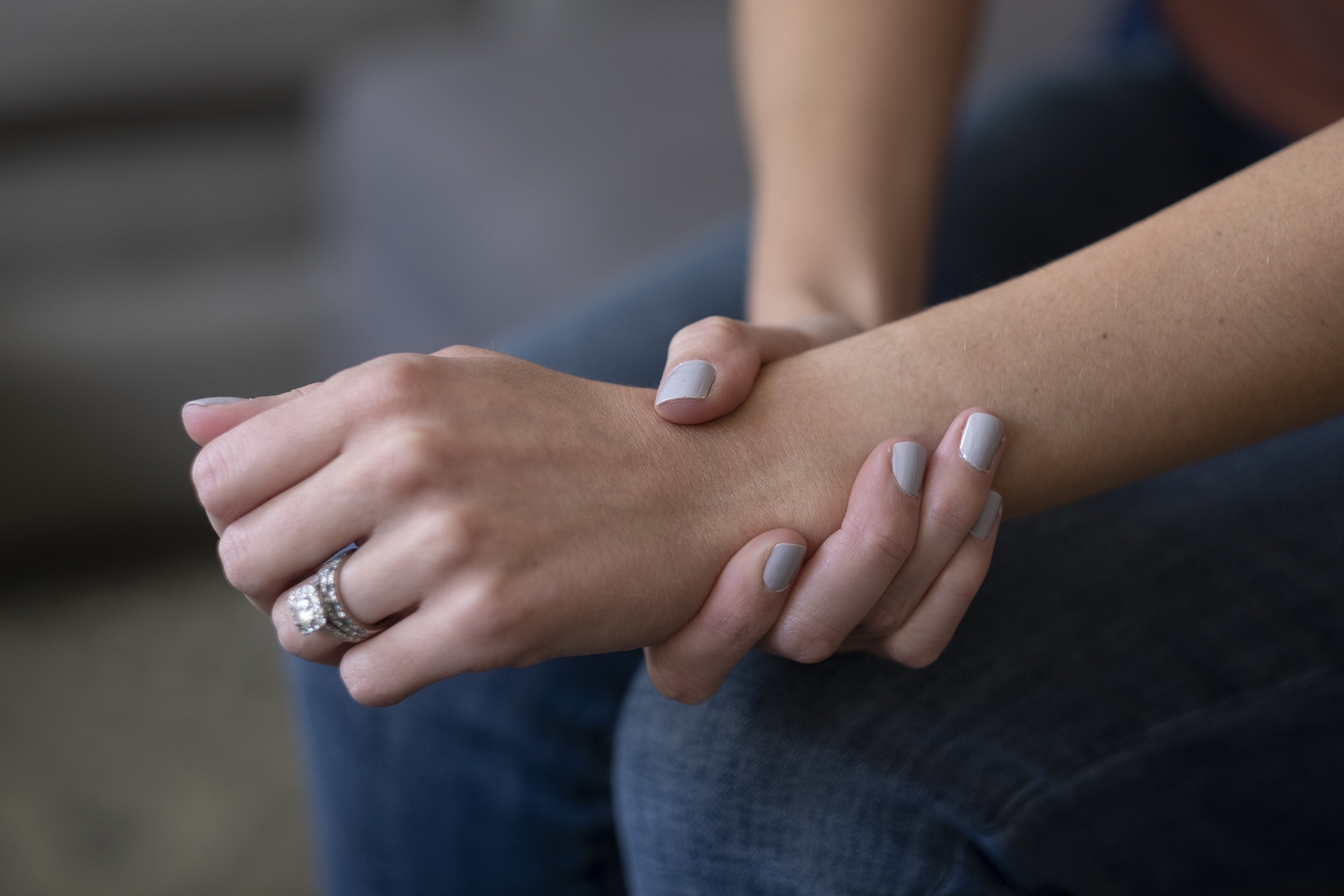Can You Prevent Osteoarthritis?

April 22, 2022
More than 32 million American adults live with osteoarthritis, the most common type of arthritis. This degenerative condition can cause pain and stiffness in joints, limiting mobility and making daily activities, like going up and down stairs, more difficult.
While there is no known way to prevent osteoarthritis, there are things you can do to reduce your risk and slow its progression.
“Osteoarthritis may not be preventable, but we can help decrease its symptoms and maybe even decrease some of the progression, so patients are able to lead a somewhat normal life with osteoarthritis,” says Randolph Sanchez, M.D., a rheumatologist at Mountainside Medical Center.
Are You at Risk of Osteoarthritis?
Some factors that increase your risk of developing osteoarthritis are difficult or impossible to change, but others you have more control over:
- Age. Osteoarthritis can affect younger people but is most often seen in people over 50.
- Sex. Women are more likely to develop osteoarthritis, especially after age 45.
- Obesity. Extra body weight adds to the stress and pressure on joints, especially weight-bearing ones like the hips and knees, which increases the risk of osteoarthritis. In addition, fat tissues can increase inflammation and may have metabolic impacts, adding to the risk.
- Joint injury or overuse. A previous injury or repetitive stress on a joint can damage it and increase your risk.
- Genetics. Osteoarthritis tends to run in families.
How to Manage Your Risk and Your Condition
“When it comes to osteoarthritis, there are steps you can take to prevent problems and make things as optimal for yourself as possible,” Dr. Sanchez says.
- Maintain a healthy weight. Not only does carrying extra weight increase your risk of developing osteoarthritis, it can also speed up its progression and increase its severity. Each extra pound adds close to four pounds of stress on your knees. Maintaining a healthy weight helps reduce your risk of developing osteoarthritis, but if you already have it, losing even just a few pounds can slow its progression and improve your symptoms.
- Strengthen your muscles. Increasing muscle strength, especially in your quadriceps, back muscles and hip flexors, supports and protects your joints. “Research has shown that patients who have participated in strength and conditioning routines tend to have less symptoms, be more mobile and have less disability in the long term,” Dr. Sanchez says.
- Exercise. Exercising is another way to keep your joints healthy. Low-impact exercises like walking, swimming and biking are great options to stay physically active while going easy on your joints.
- Protect your joints. Not all injuries can be avoided, but protecting your joints can help reduce your risk or stop your osteoarthritis from getting worse. Warm up and cool down when exercising, and change up your routine so you don’t overwork any one group of muscles and joints. Use exercise and safety equipment as instructed to reduce injury.
Osteoarthritis and Diet
What you eat won’t cure or prevent osteoarthritis, but it can reduce the severity of the disease and may slow its progression.
Research suggests that eating a Mediterranean diet can help reduce inflammation in people with osteoarthritis and help with weight loss.
The Mediterranean diet is full of whole foods, plants, fiber and healthy fats. Fill your plate with foods such as:
- Oily fish, such as salmon and mackerel, or other sources of omega-3 fatty acids
- Fruit and veggies
- Whole grains
- Healthy fats, such as olive oil and nuts
- Garlic and onions
- Beans
Next Steps & Resources:
- Meet our source: Randolph Sanchez, M.D.
- To make an appointment with Dr. Sanchez or a doctor near you, call 800-822-8905 or visit our website.
The material provided through HealthU is intended to be used as general information only and should not replace the advice of your physician. Always consult your physician for individual care.
Find a doctor near me
Foods You Should Avoid with Rheumatoid Arthritis

Avoid these foods to ease rheumatoid arthritis symptoms. Dr. Kuzyshyn offers expert advice and resources. Call 800-822-8905 for help.
Can Physical Therapy Help Your Arthritis?

Manage arthritis pain? Physical therapy may help improve mobility and range of motion. Learn more and schedule an appointment today.
Find a doctor near me

Things You Did Not Know About Kids and Arthritis
Learn about juvenile arthritis. Dr. Janow explains symptoms, diagnosis, and treatment for children. Get expert pediatric care today.

How to Avoid Slipping on Ice
Avoid winter falls! Dr. Porter shares tips for safer walking on ice, preventing injuries like ankle sprains and fractures. Learn how to walk and fall safely.

Protect Yourself From Golfers’ Wrist
Prevent golfer's wrist pain. Learn how to manage and avoid this common golf injury with expert advice from orthopedic surgeons. Find relief today.

Shoulder Pain Without Injury: Top 6 Causes and How to Find Relief
Learn about common causes of shoulder pain without injury and how to find relief. Discover treatment options from experts at Hackensack Meridian Health.
